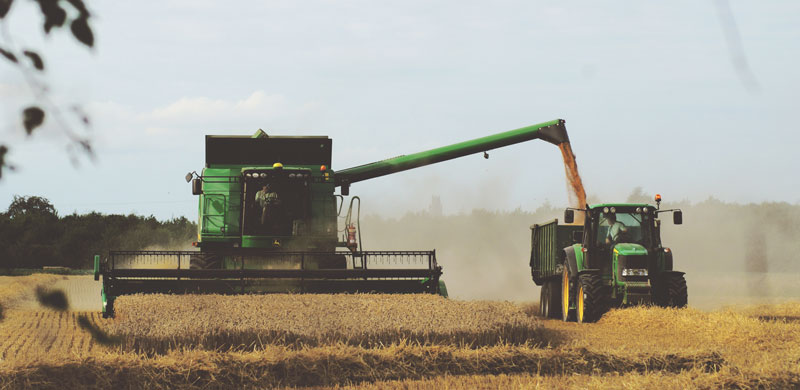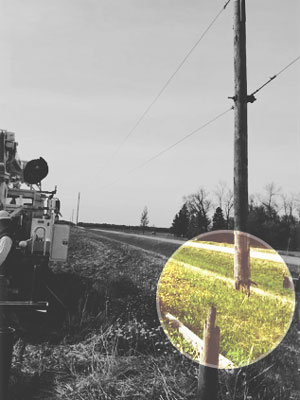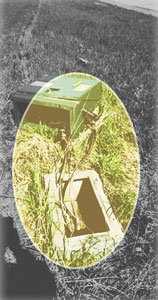
Making contact with a power line that is overhead or underground is serious and can be deadly. Several of these incidents occurred last year to farmers in our own state with tragic results. At our cooperative, we had 16 incidents last year involving farm equipment and we are thankful no one was injured, but someone could have been. Sixteen incidents are sixteen too many.
 How Accidents Happen
How Accidents Happen
Overhead Power Lines
- Deciding to place the hay bales under a line
- Moving an irrigation system and it goes right into the line
- Turning in a field and hitting the pole —breaking it at the base
- Snagging the guy wire and bringing down the pole and lines
- Planting trees right under the lines
 Underground Power Lines
Underground Power Lines
- Backing the truck into the underground cabinet, opening it up, and exposing the energized equipment
- Piling material near the underground cabinet, preventing crews from opening it up for maintenance
- Digging and hitting a line, because no one called 811 to do a locate first
How to Stay Safe During Harvest
- Always keep 10 feet distance from any overhead power line. Use a spotter to watch the equipment being moved. Remember: power lines can sag—just because your equipment cleared it last year, it might not this year.
- Make it a habit to look overhead before beginning work and note the location of power lines and underground cabinets. Point them out to others working with you.
- In windy conditions, use additional caution when moving equipment. It’s always better to lower the equipment, such as grain augers, before moving.
- Report any lines that appear low or sagging.
- Always call 811 before doing any digging.
- If your equipment hits a power line, do not exit. Remain in the cab (as long as it is not on fire) and call the co-op right away. If you must leave, know how to leave the cab properly using the “bunny hop” technique.
- Warn anyone approaching a cab that has come in contact with a power line to stay a safe distance away—at least 40 feet.
- Have an emergency plan in place, and teach all family members what to do in case of an emergency.
- Don’t touch or move anyone who is in contact with electricity—you could be shocked. When calling 911 or your local emergency number, be sure to report it as an electric-contact accident.
Prepared by Minnesota Rural Electric Association for our cooperative. Author: Lidia Dilley Jacobson
 Lake Region Electric Cooperative
Lake Region Electric Cooperative